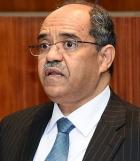Rethinking the macroeconomics of resource-rich countries
After years of high commodity prices, a new era of lower prices, especially for oil, will be challenging for resource-rich countries, which must cope with the decline in income and the potential widening of internal and external imbalances. This column summarises a recent eBook in which leading economists examine the shifting landscape in commodity markets and explore the exchange rate, monetary and fiscal policy options, as well as the role of finance, including sovereign wealth funds and diversification.


